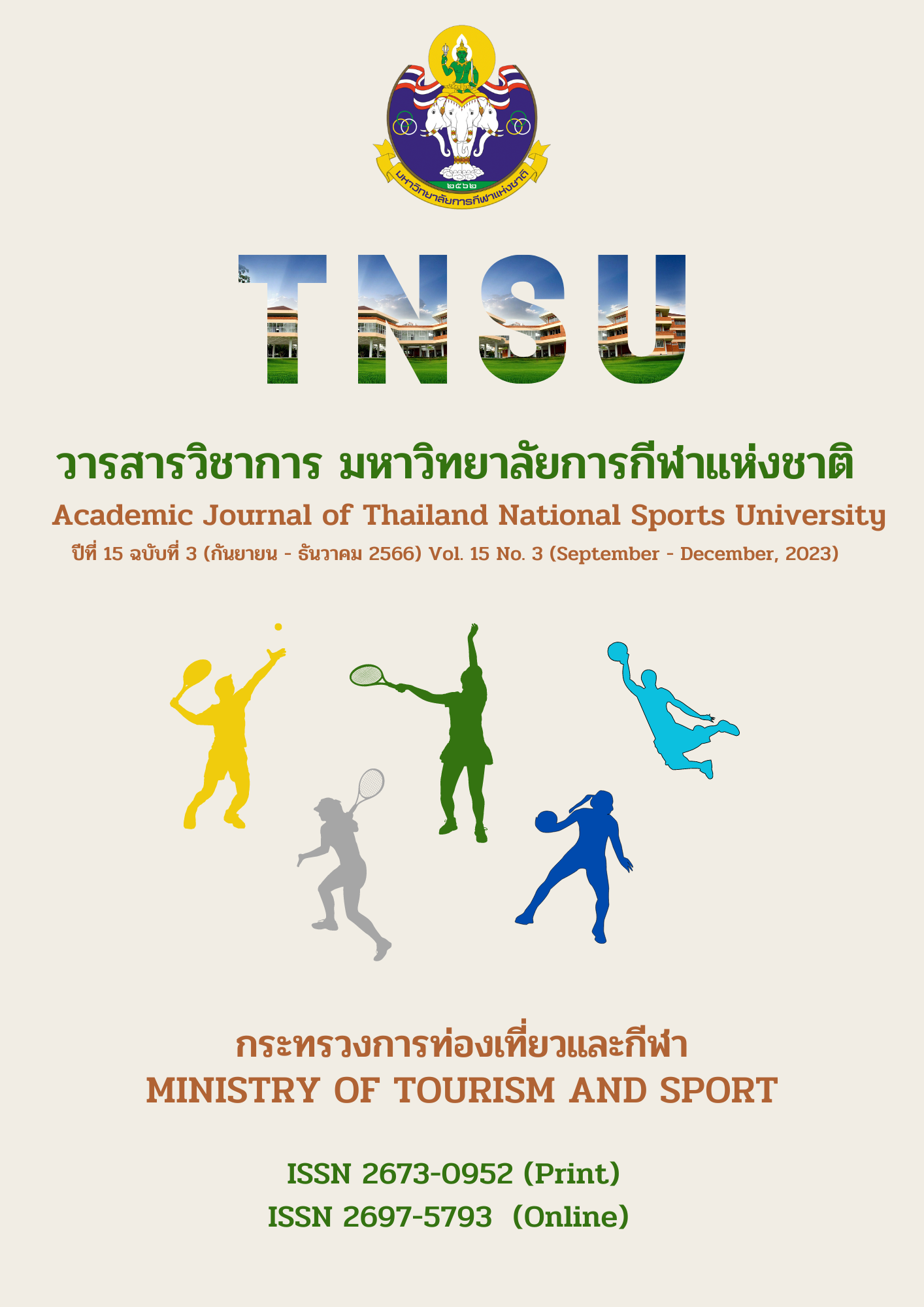HOLISTIC SPORTS MANAGEMENT AND EXCERCISE PROMOTION UNDER THE CONCEPT OF AN ECONOMIC MODEL FOR SUSTAINABLE DEVELOPMENT
Main Article Content
Abstract
This academic article aims to explain the process of sports management to enhance the holistic sport industry under the concept of BCG Model and success factors of sports management concepts that encourage people to be healthy and friendly to the environment. The author applied the concept of system theory to analyzed the issue. It was found that the input factors consisted of participants, activities, contents of activities, competition activities, media and technology in sports activities and participants. organize sports activities regarded as an important resource. The process through the creating a body of knowledge process and bringing the body of knowledge to communicate to those involved in order to realize the importance of exercising and taking care of health and follow up on the results of the implementation. The important output that occurs is having good health (Wellness) including intellectual health, behavioural health and environmental health. This will lead to outcomes and impacts in the long term, both sports management that aims to promote the existence of biodiversity, sports management that encourages people to use resources economically and efficiently in accordance with the circular economy, including the management of sports that encourage people to be friendly to the environment through balanced, sustainable and resilient development for well-being. However, holistic sports management that aims to promote exercise for Thai people under the concept of an economic model for sustainable development is a new thing that is happening in Thai society. Therefore, aiming for Thai people to be healthy people by exercising and being friendly to the environment. Therefore, it is essential to start from raising awareness among Thai people from all sectors namely children, youth and the general public. The organizer of exercise activities and sports competitions, including government and private agencies involved in promoting and supporting human development through sports through learning process and participation cause awareness, understanding and consciousness which is important foundation for the development of sports in various parts in the future.
Article Details

This work is licensed under a Creative Commons Attribution-NonCommercial-NoDerivatives 4.0 International License.
The published article is a copyright of the Academic Journal of Thailand National Sports University. The passage appeared in each article in this academic journal is a perspective of each author which is not related to the journal. Each author is required to be responsible for all components of his/her own article. If there are any mistakes, each author must be responsible for those mistakes on his/her own.
References
Bergsgard, N. A., Houlihan, B., Mangset, P., Nodland, I. & Rommetvedt, H. (2007). Sport Policy. London: Routledge.
National Science and Technology Development Agency (NSTDA). (2018). Bioeconomy. Pathum Thani: National Science and Technology Development Agency.
National Science and Technology Development Agency (NSTDA). (2020). What is BCG Economy Model?. Retrieved from https://www.nstda.or.th/home/knowledge_post/ what-is-bcg-economy-model/
Orem, D. E., Taylor, S. G., & Renpenning, K. M. (2001). Nursing: Concepts of practice (6th ed.). St. Louis: Mosby.
Pender, N. J. (1996). Health Promotion in Nursing Practice (2nd ed.). Norwalk. Conn: Appleton and Lenge.
Ratima Kachanan. (2015). Innovation: A key factor that sustainably drives the Thai economy. Bangkok: The Secretariat of the House of Representatives.
WHO. (1986). Ottawa Charter for Health Promotion. Retrieved from http://www.who.int/hpr/ archive/does/ottawa.html


